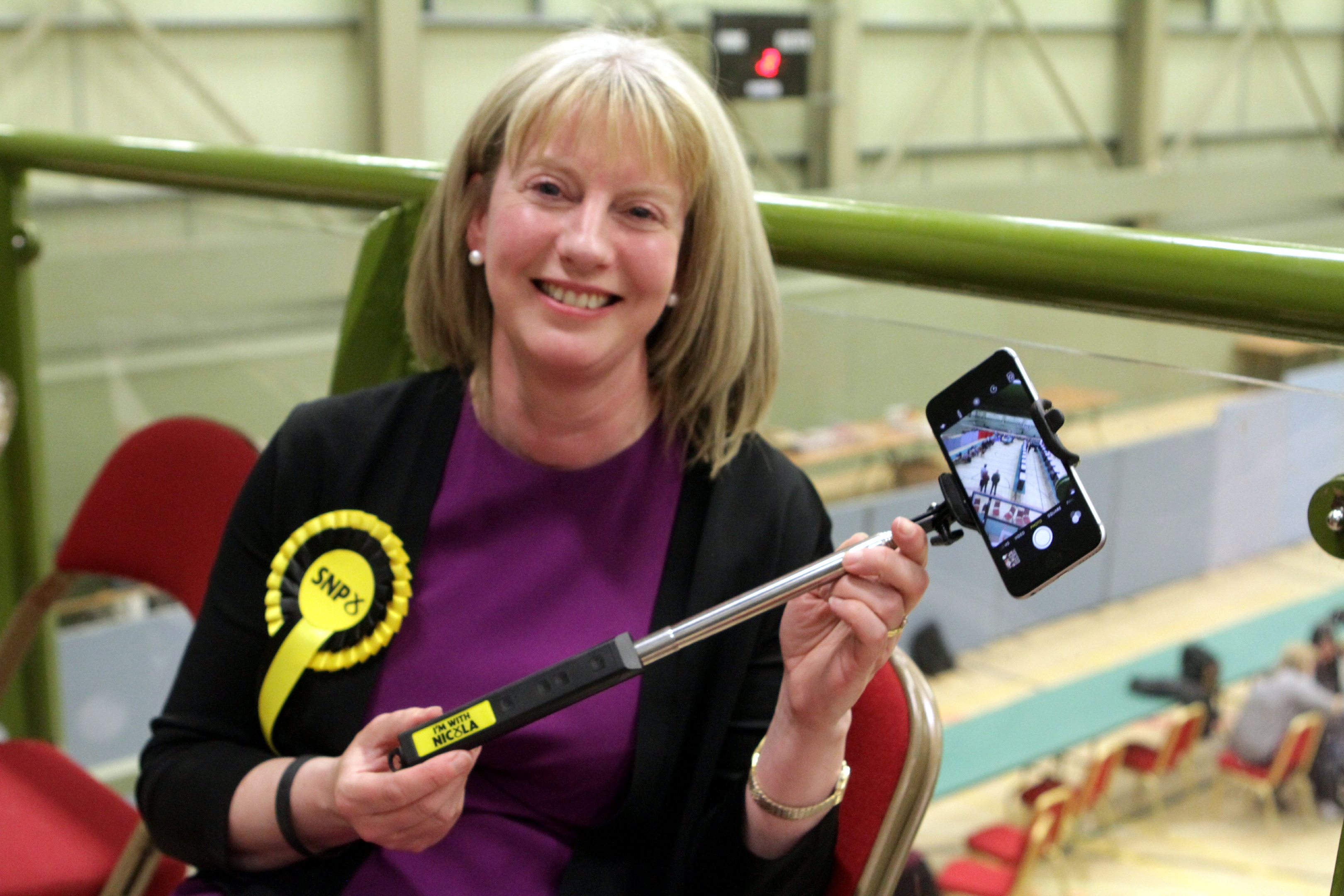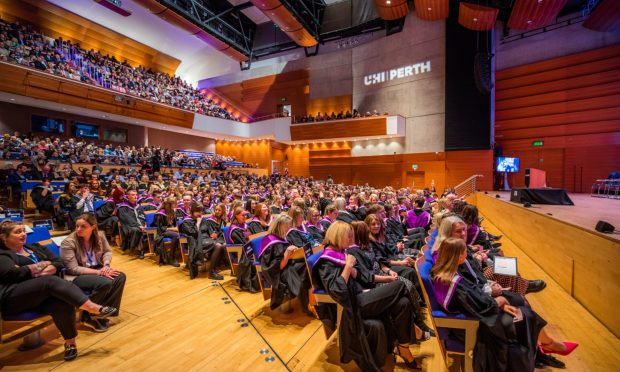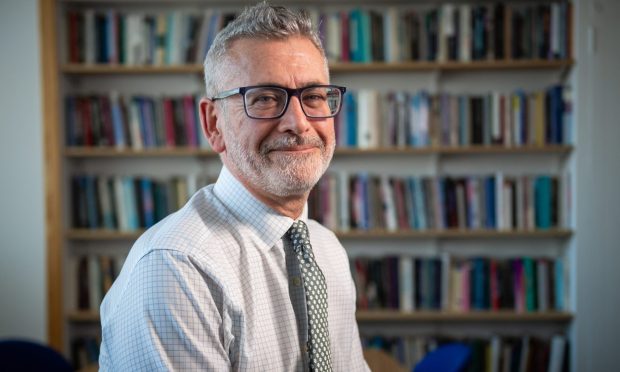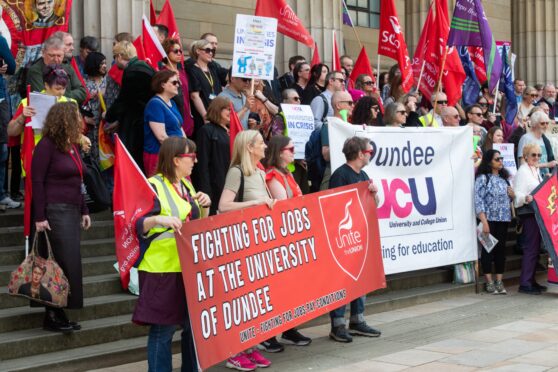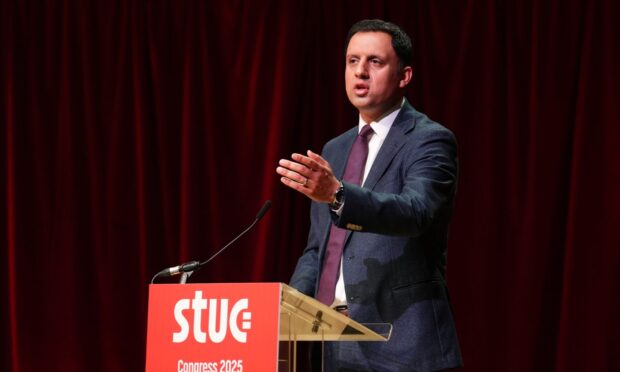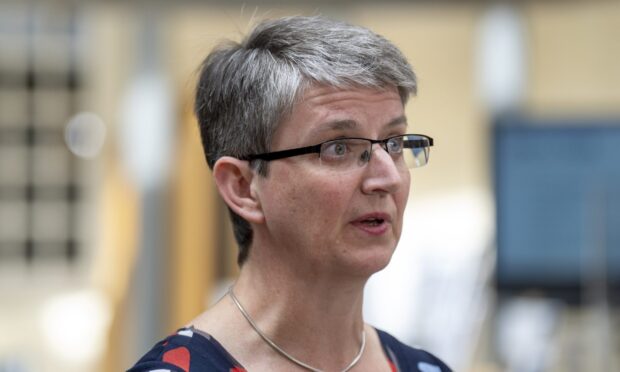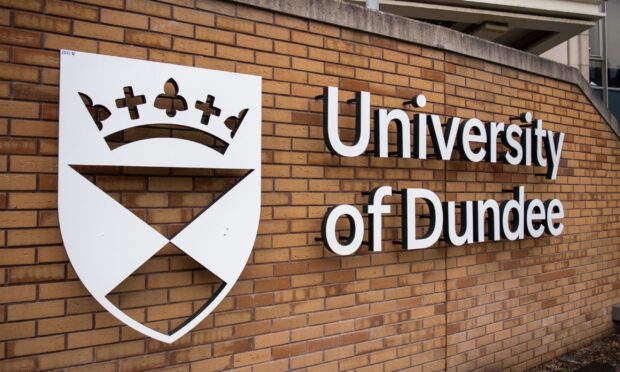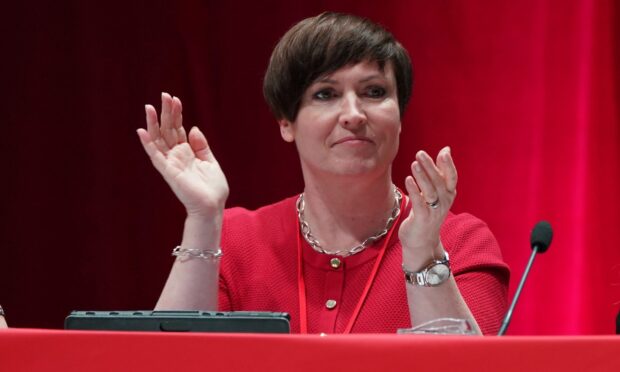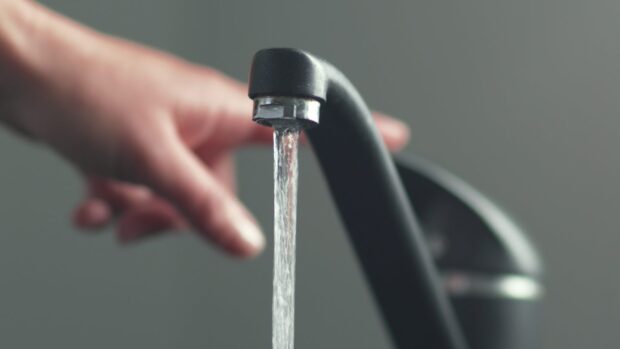Shona Robison secured a fourth term as MSP for Dundee City East and hailed the victory as a mandate for the SNP to “get on with the job of improving the city and Scotland”.
Her victory was in little doubt as the respected politician and long-time cabinet minister enjoyed the security of a 10,679 majority from the 2011 election.
The first ballot boxes to arrive at DISC suggested that was unlikely to change and in the end she marginally increased that margin of victory over Scottish Labour to 10,898, securing 16,509 votes.
Speaking after her re-election was confirmed, Ms Robison said: “This is the fourth time that the electorate have put their faith and their trust in me.
“It becomes more humbling each time.
“This is a city that is transforming but we must ensure that the regeneration and investment being made benefits everyone across Dundee.”
She said there would be opportunities in the creative industries and pledged that SNP policies would help to close the attainment gap, oppose Tory austerity and tackle poverty.
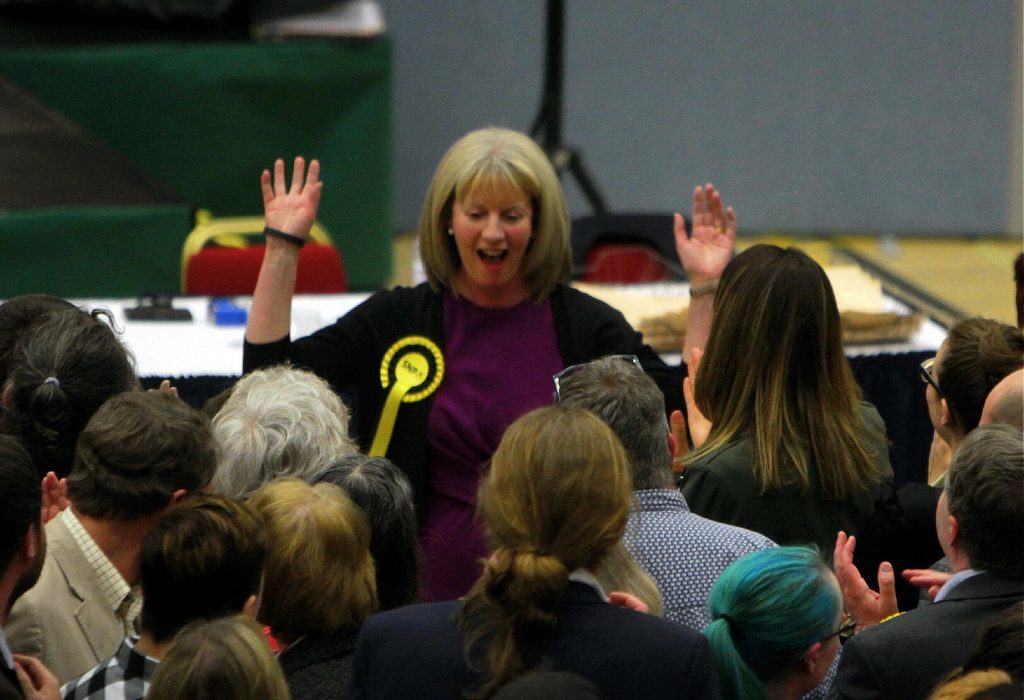
Ms Robison added: “This election result is not a mandate for a second referendum, but it is a mandate for the SNP Government to get on with the job of improving this country, using the new powers of the parliament.
“We will be taking steps that will raise £2 billion to make things better, providing money to raise attainment and introducing a raft of policies that are about tackling austerity and tackling poverty.”
For Conservative Bill Bowman, the campaign was a qualified success, as he saw the party’s share of the vote almost double, buoyed by strong support from the electorate in Broughty Ferry.
Labour candidate Richard McCready secured 5,611 votes to place second overall, as the party’s share of the vote largely held firm.
He nonetheless admitted the result was “disappointing” as he had been “in it to win it” but expressed pleasure that he had been able to make “a positive case for jobs and investment”.
“We were always realistic as we were up against a high profile cabinet minister, but I do believe that we took the fight to the SNP,” he said.
“Obviously we have not made the breakthrough that we wished and we must find a way to do that in Dundee and across Scotland.”
Liberal Democrat Craig Duncan gained 911 votes, while the Trade Unionist and Socialist Coalition’s Leah Ganley secured 437.
She offered her own, unique take on the increased number of voters, claiming it was evidence that they were “disillusioned with the SNP” and called upon Ms Robison to “commit to ending austerity in Dundee”.
All parties reported an excellent response from voters on the doorstep, but the high voting turnouts of the referendum and last May’s general election were forgotten as Dundonians went to the polls in lesser numbers.
Across the city, 122 polling stations opened for business, including 23 schools, but many were far quieter than 12 months ago.
From around 70% turnout during the general election, the number of eligible voters who stepped-up to shape Holyrood dropped to just 51.6%, with 28,545 candidate votes cast.
Nonetheless, that was a marked improvement on the 2011 Scottish elections, when a little over 47% of those eligible cast their vote.
